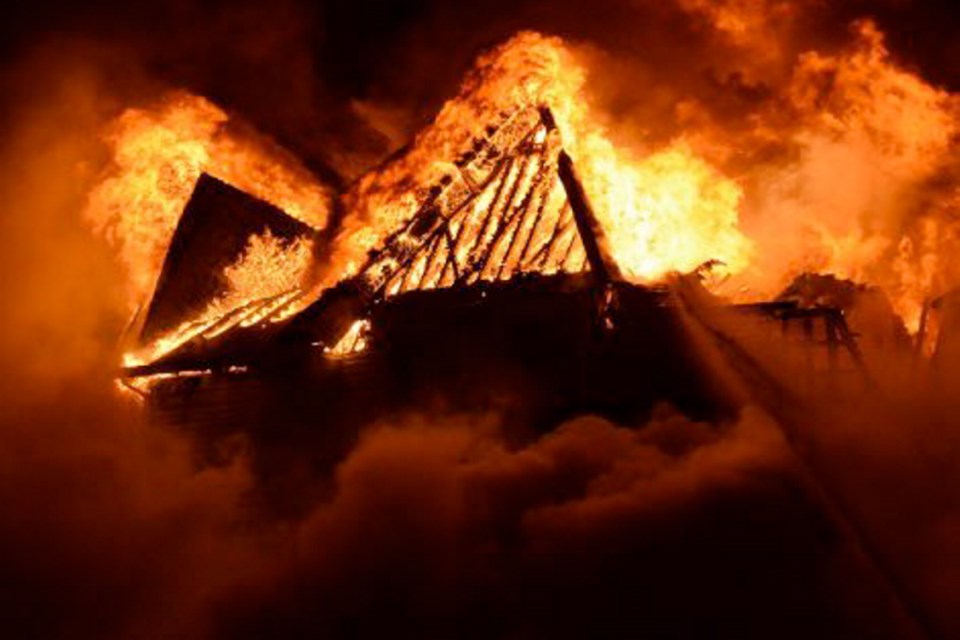The horrific fire at a Quebec seniors’ home sparked calls Friday for the B.C. government to make sprinkler systems mandatory in all seniors’ facilities.
“How many deaths will it take before they take steps?” said Martha Jane Lewis, executive director of the B.C. Centre for Elder Advocacy and Support.
The centre wants B.C. to follow the lead of Ontario, which moved last year to make sprinklers mandatory in all seniors’ care facilities and homes for people with disabilities.
Ontario gave licensed facilities five years to install sprinklers, but may accelerate the process following the fire this week in L’Isle-Verte, Que., where eight people are confirmed dead and as many as 30 are missing.
Lewis said there is no less urgency in B.C., where an 80-year-old man died last year in a fire at a Langley seniors’ facility that had no sprinklers.
B.C. requires automatic sprinklers in new care homes, but there is no requirement to retrofit older buildings built before 1996.
Island Health said most of its licensed care homes have been retrofitted, but there are still eight of the 84 licensed facilities without sprinkler systems.
Former B.C. Fire Commissioner Dave Hodgins, now an Esquimalt councillor, said “it’s almost criminal” that people continue to die in fires when the technology exists to prevent it.
“A hundred years of experience with sprinklers,” he said. “We know they work. We know they’re relatively inexpensive to install today — whether it’s new or retrofit. Why can’t we get there?”
Hodgins believes sprinklers should be standard in all homes, just as seatbelts and airbags are standard in cars. Making them mandatory in seniors’ homes should be the “absolute minimum requirement,” he said.
“It’s just totally unacceptable in this day and age to have people die in fires unnecessarily.”
Surrey Fire Chief Len Garis, past president of the Fire Chiefs’ Association of B.C., agreed that sprinklers dramatically reduce the risk of dying in a fire. But he said fire officials need to balance the risk with the costs of retrofitting older buildings.
“I don’t want to jack the cost up for an occupancy so that these people can’t afford to live there,” he said. “So we have to make sure that there’s a careful balance.”
Garis said only one of the 36 care homes in his jurisdiction lacks sprinklers, and it has just nine suites, an upgraded fire alarm system and good supervision. “So from a risk perspective, I think I’m in pretty good shape.”
Similarly, the Victoria Fire Department says three of 29 residential care facilities in the city lack sprinklers, but they are relatively small and residents have to be ambulatory.
Garis said the province’s first step should be to conduct an inventory to see how many buildings lack sprinkler systems and what the potential vulnerabilities are in older buildings.
The B.C. Care Providers’ Association took a similar position Friday, calling for an urgent meeting with health and fire officials to begin the process of cataloguing all older buildings in need of automated sprinkler systems. Daniel Fontaine, chief executive officer, said that information should then be made public.
“The necessity for automatic sprinkler systems in long-term care and assisted-living residences should be uncontroversial,” he said in a statement. “However, across Canada, there is a patchwork of sprinkler regulations.”



